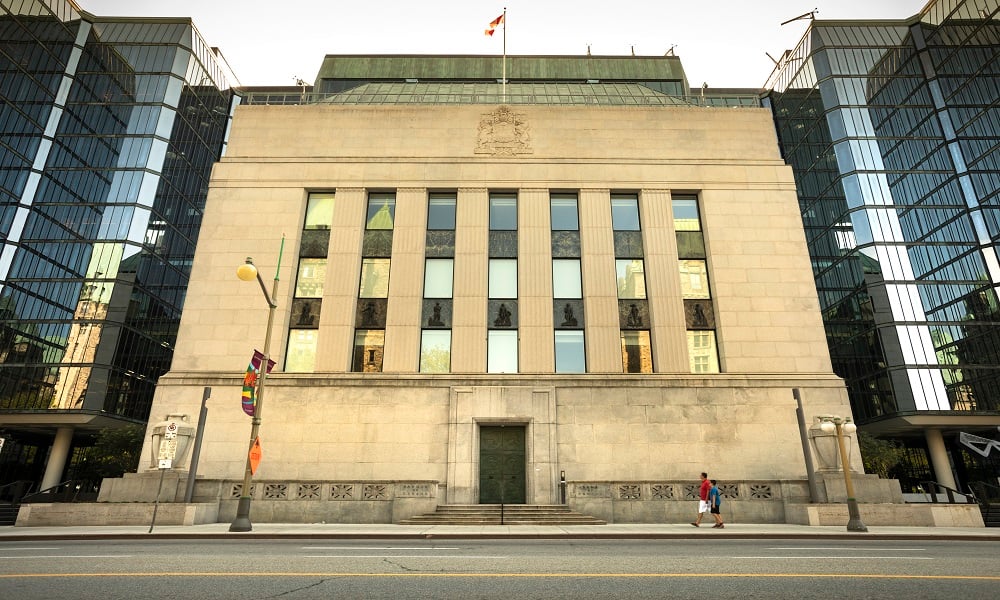Inflation trends will play a major role in the central bank’s strategy, says the bank’s chief economist

The Bank of Canada is likely to maintain its course towards overnight rates being at least 50 basis points higher by the end of 2022 compared to today, according to RBC Economics.
Taking inflation trends into account, overnight rates might go from the current 0.25% to 0.75%. Similar or even higher gains, on the order of a 50- to 75-basis-point increase, might be seen in market interest rates and mortgage rates, RBC said.
Craig Wright, the bank’s chief economist, said potential increases would be a “significant rise from where we’re at, but in the grand scale of things, [a] very modest interest rate environment – very low and stable as we move forward.”
He agreed with the Bank’s assessment that current inflationary pressures were transitory rather than an indication of a longer-term problem.
Read more: Rate hikes won’t stop runaway price growth – economist
“We’re in that team transitory camp, but most of the points are being scored right now by the persistence of these inflation pressures and a lot of them supply driven,” Wright added. “With time, the supply like the housing market will catch up and ease some of those price pressures.”
Wright said that unfavourable conditions working on both Canadian inflation and the global economy will likely fade next year, helping put a cap on inflationary pressures.
“The unemployment rate’s still well above the 5.5% or 6% level we thought was normal pre COVID. So that’s not usually the environment where workers look for wage gains. They tend to focus more on job security,” Wright said. “And the economy’s still operating below its capacity. So that’s not the usual environment where inflationary pressures take hold and persist.”



